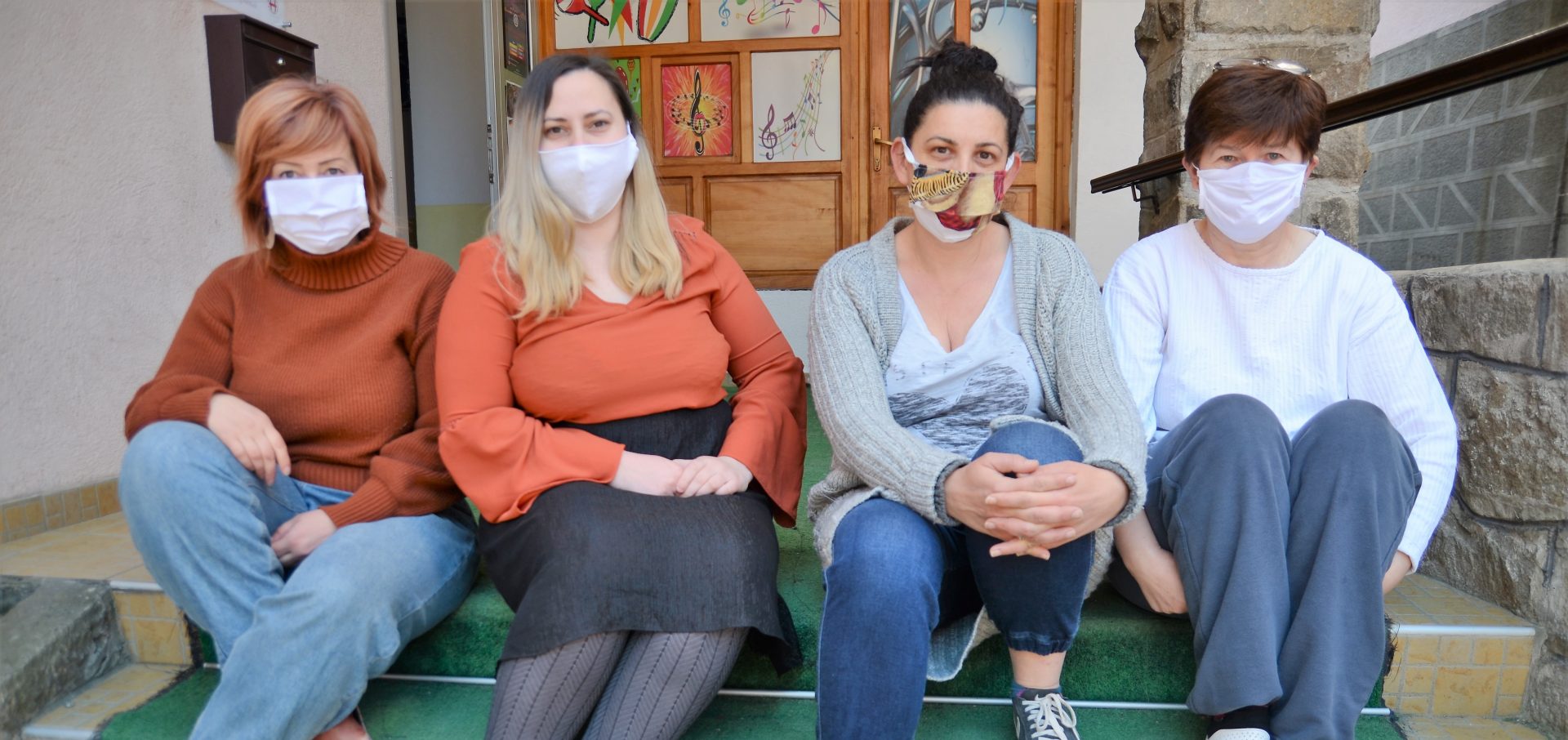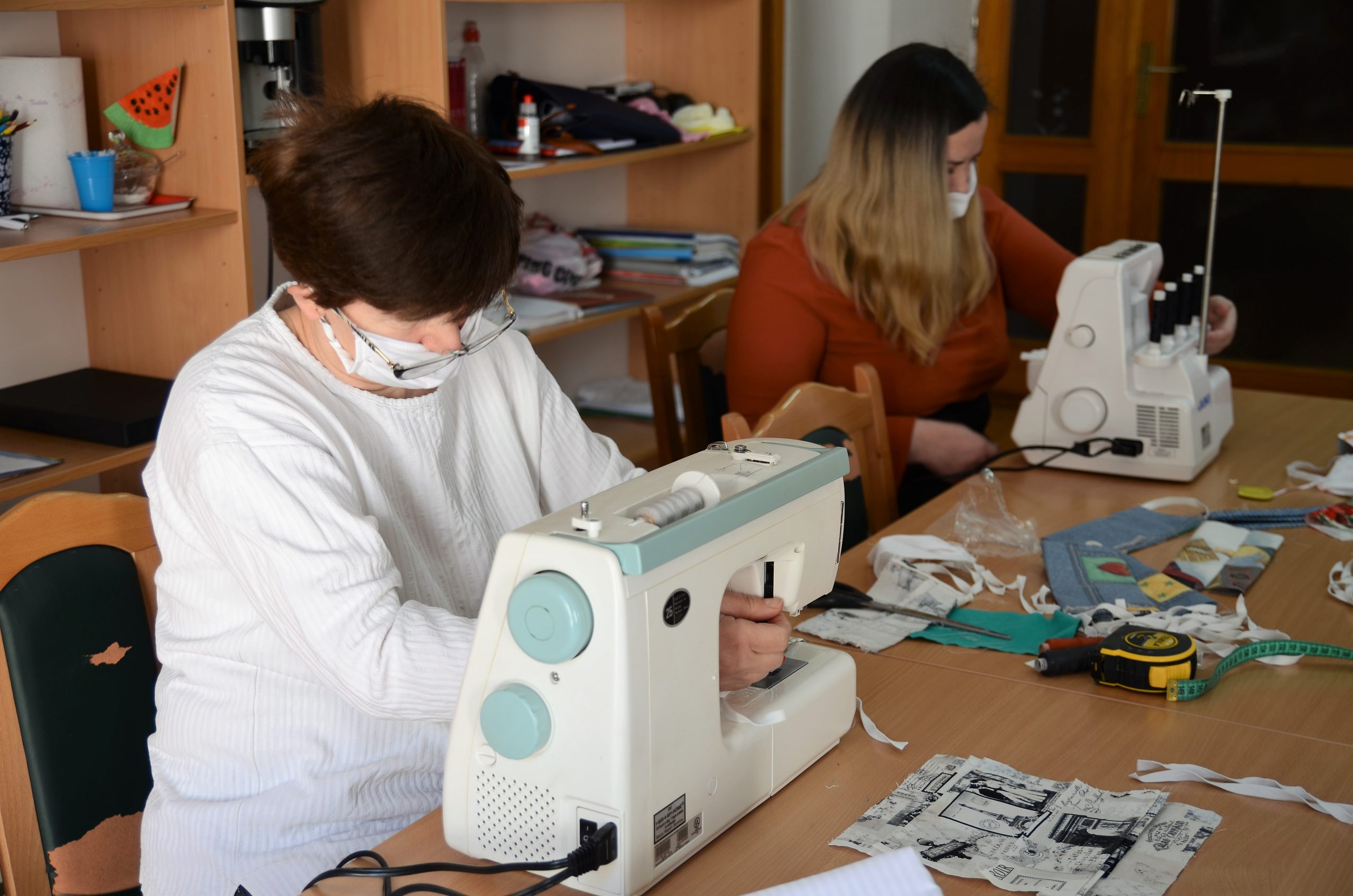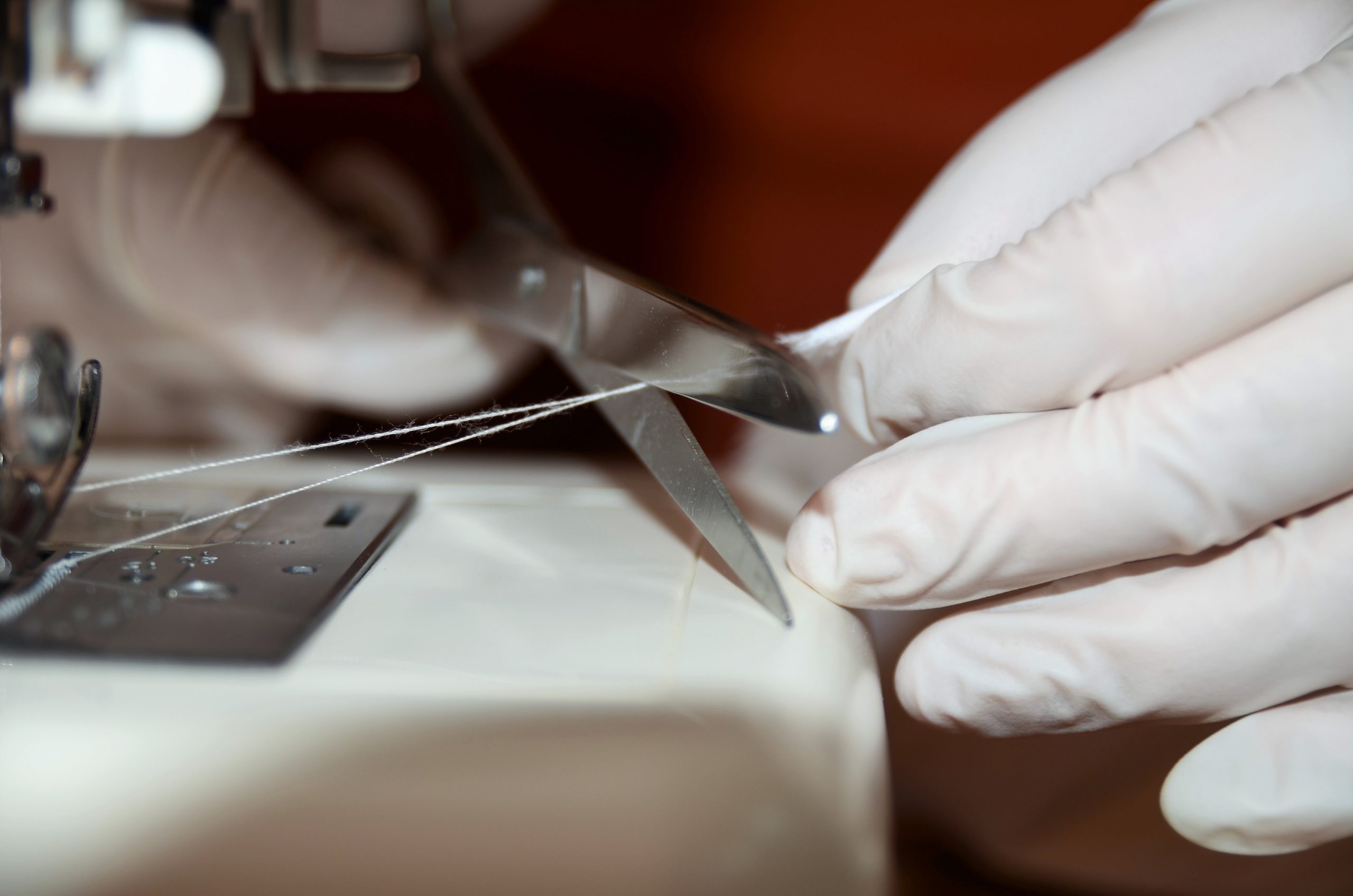
There are not a lot of us in Srebrenica and we need to stick together through communion and mutual care.
A group of powerful women from Srebrenica have sought to respond to the corona-virus pandemic by hand-making protective face masks for those in their communities.
Valentina Gagić-Lazić, one of the founders of the association uniting the group of women, Sara-Srebrenica, and a long-time activist in Srebrenica since moving there in 1995, explained the initiative’s origin:
“We didn’t want to do this only as part of an association, but rather as individuals. Ibrima Halilović, an employee at MI BOSPO, was the first one to react. She got in contact with us and told us that she was willing to sew but that she didn’t have the machine required for it. We exchanged a few ideas and quickly came to a solution. We gave her all the resources our association has such as machines, materials, and threads. We also reserved a location to function like a small workshop.”
The group began with just six women; three sewed and the rest washed, tailored, and ironed the masks.
“The idea was to show our fellow citizens that we stand with them during these troubling times. We hope that these masks will make them feel more protected. There are not a lot of us in Srebrenica and we need to stick together through communion and mutual care. Word of our work must have gotten out because more and more people started supporting us. Women began reaching out to, offering to donate materials and help in other ways. Everyone should help as much as they can afford. The spirit of solidarity, in these times, can be felt,” Gagić-Lazić added.

The dynamic group encapsulates women from different professional backgrounds who are all set on the same goal: supporting their community. Women in the group are: Valentina Gagić-Lazić, Stana Medić, Željka Milovanović, Hilda Đozić, Jelena Bibić and Ibrima Halilović.
Valentina Gagić-Lazić assists with the cleaning, tailoring, and ironing, while Stana Medić, also one of the founders of Sara-Srebrenica, supports the efforts by sewing masks at her home due to her high-risk status.
Željka Milovanović joined the effort to sew using her own machine. An employee of the EKONOMIK factory that makes prefabricated containers, women from Srebrenica say she is a fierce fighter who doesn’t shy away from any job when it comes to assisting her community.
Hilda Đozić, an employee at House of Good Tones and an active member of her community, contributes by tailoring and distributing the masks. Reacting swiftly to the health crisis, Đozić coordinated with the management of House of Good Tones to secure a work space for the effort.
Another active member of her community, Jelena Bibić, together with her daughter, tailors and prepares masks for sewing.

Collectively over 1000 masks have been sewn and distributed to workers of local shops, pharmacies, older community members, and others who still needed one as well as to Srebrenica’s neighboring villages.
Sara-Srebrenica continues to respond to the needs of the local and expanded community working alongside the Red Cross and Civil Protection office in Srebrenica to ensure its resources are accessible. As mask production continues, the demand has increased with the implementation of mask wearing requirements.
“The reason we all got together was to contribute. We wanted to do something concrete and useful, as we always do. We just instinctively reacted. It’s important that we share a spirit of solidarity in these troubling times. We must do everything in our power. I believe that has been the driving force for each and every one of us,” Gagić-Lazić reflected.
Assisting their neighbors in a time of great need, this innovative group helping in a range of capacities serves as a reminder of the power of determined women who seek to support their communities.
Photographs: Ahmedin Đozić






